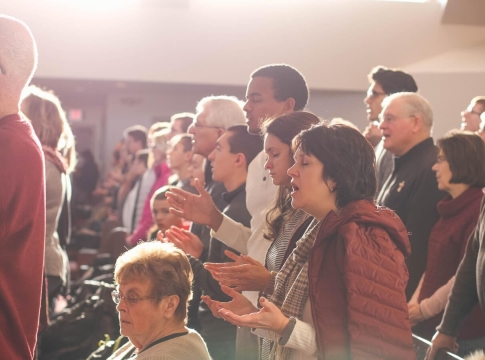
There will undoubtedly be disagreements inside the church, that much is certain. This is because Christians continue to sin even if Jesus has saved them. This implies that individuals within a church family will sin and harm other Christians in different ways. How ought we to react?
Jesus talks about this in Matthew 18:15–17. “Go reveal your brother his fault, just between the two of you, if he trespasses against you. Your brother is yours if he pays attention to you. If he refuses to listen, however, bring along one or two more witnesses so that “the testimony of two or three witnesses may establish every matter.” Tell the church if he doesn’t listen to them, and if he doesn’t listen to the church either, treat him like a tax collector or a pagan.
Three stages
Three phases of dispute resolution are described in these verses:
- Verse 15: Go talk to the person who has sinned against you. You two can get back together if they acknowledge their transgressions and ask for forgiveness. In these situations, the goal is forgiveness (Matthew 6:14–15), which requires love because love is able to forgive a wide range of transgressions (1 Peter 4:8).
- Verse 16: If the one who transgressed against you refuses to listen to you, arrange a follow-up meeting with them and a few other people who can attest to the fact that sin is a problem. These individuals must have witnessed the dispute between the two sides. Seeing and understanding one’s own sin and encouraging the transgressor to turn from their sin and ask for forgiveness remain the goals.
- Verse 17: The injured party should take the problem to the church, that is, the church elders, if the person still refuses to listen to you and two or three other witnesses. The church elders may then apply church discipline in this case if the offending party continues to refuse to listen and acknowledge their wrongdoing (Matthew 18:18–20; 1 Corinthians 5:3-5).
Forgive each other
In most cases, stage 1 will take care of matters when there is disagreement among Christians. This is due to the fact that most problems are little and obvious, and individuals are aware of their sins.
But in any confrontation, we must never forget that we are all sinners and that we may have sinned in the situation at hand—not to mention in the way we have reacted to being sinned against. Therefore, it’s possible that we’ll need to be forgiving as well as asking for forgiveness. “Above all, love each other deeply, because love covers over a multitude of sins,” says 1 Peter 4:8.





